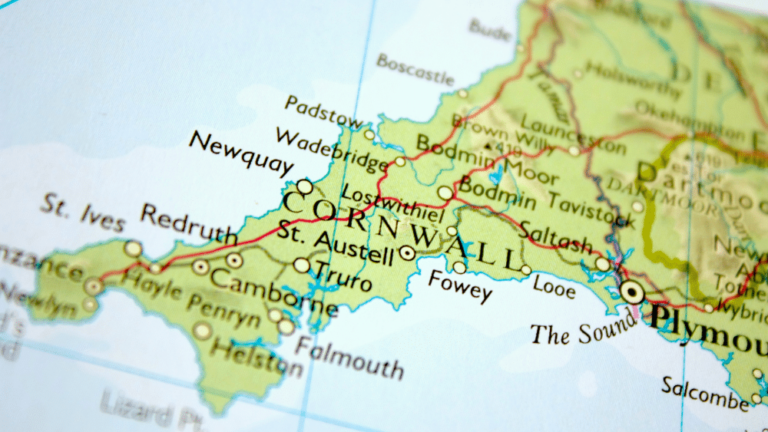
What potential tax changes could be announced in the Budget on 30 October?
John Endacott assesses what the new Chancellor’s statement on public spending inheritance suggests about the direction of travel for taxation
I’ve been reluctant to make any public comment on the measures that Rachel Reeves might introduce as Chancellor to date. Personal political bias is difficult to avoid and it has been hard for me to be objective as there has been too little to go on. However, we are now almost a month into the new Government and we were given a notable insight into the thinking by Rachel Reeves’ announcement to Parliament on Monday 29 July and the documents that were published alongside it.
Rachel Reeves presented a need to find a further £22 billion each year to meet what was described as unfunded public expenditure commitments. A large proportion of the unfunded public expenditure relates to pay awards (£11 billion), which appears to be the departmental costs. In response to this, the Chancellor introduced public expenditure cuts of £8 billion a year from next year. This is a significant proportion of the total – especially given that the pay awards will be subject to income tax, meaning that perhaps a third (£4 billion) flows back to the Exchequer. What goes around, comes around. If that is right then the remaining gap may not be too much to bridge.
If so, the “black hole” in the Government’s finances may be a bit overdone. There are several newspapers that view it as a justification for tax rises, but even if one believes that it is designed to provide political cover, that doesn’t mean that it can only be tax rises. The audience may be the Labour party faithful and a need to convince them that public spending can’t be increased further and instead needs to be cut. In that context, one could consider this “black hole” in the context of there being no money to end the two-child benefit cap and as a message to other public sector workers that the 22% to junior doctors over two years is a one-off. Don’t expect something similar.
That said, we have been warned to expect at least some tax rises on 30 October. Rachel Reeves has been keen to stress that taxes will not be raised for working people. She is also very keen to support businesses as part of her growth agenda. Indeed, she finished her statement to Parliament on Monday by saying:
“I know that if we can create the stable conditions which investors need to thrive, we can build on the UK’s strengths and return confidence to our economy so that entrepreneurs and businesses big and small know that this is a place to do business, as that is the bedrock on which economic growth must be built.”
So much for fine words, what can we deduce from the Chancellor’s actions to date, and what has been announced to date? Paragraph 75 of ‘Fixing the foundations: public spending audit 2024-25’, published on 29 July, states:
“The Government is committed to tackling tax non-compliance, including from fraud and tax avoidance, to ensure everyone pays their fair share. The Government will increase HMRC’s compliance staff, invest in HMRC’s resources and technology infrastructure, and make legislative changes to tackle tax non-compliance and raise revenue.”
The message of the announcements and supporting documents more generally was about reducing waste and eliminating incompetence. The takeaway was that the previous Government had been spending money badly and that the new Government can spend the money more intelligently. Whether or not you believe it, one can expect that message to continue into the Budget on 30 October.
So far, Rachel Reeves has stuck to tax changes as set out in the Labour Party Manifesto (non-doms, VAT on school fees and more tax on carried interest). Apart from these, the announcements on 29 July confirmed the abolition of the Furnished Holiday Let rules and the withdrawal of charitable rates relief for private schools. Whilst not a tax change, the restriction of the winter fuel payments to a much narrower group does give an insight into her approach.
So, what can I deduce from all of the above?
- Restriction of tax reliefs is likely as a means of raising revenue – tax reliefs can be portrayed as profligate or wasteful
- Tax changes are more likely to be focused on definition of who is subject to a tax or entitled to a relief – rather than rate changes
- Fuel duty is likely to increase – or at least the escalator that is already in the forecasts will apply. This would be inflationary though, and that could have an adverse impact on future government financing costs
- The Government will want to introduce relatively simple measures that are financially significant in terms of the sums raised
- The Government will be reluctant to introduce any measures that can be construed as damaging businesses or incentives to work
I find it hard to see how increasing capital gains tax (CGT) significantly fits with the message above – but there are many economists calling for that change – so who knows?
As far as other changes are concerned, I can see possible targets of:
- business property relief (BPR) on AIM shares
- agricultural property relief (APR) on let farmland
- the probate value uplift for CGT where BPR or APR applies
- pension funds remaining undrawn after age 75
But do any of these raise enough tax to be worth the bother? If the Chancellor is prepared to raise tax rates, then possible targets could be the dividend tax rate of 8.75% for basic rate taxpayers or maybe an increase in the main CGT rate.
My personal perspective is that a CGT rate equivalent to the income tax rate is enormously damaging to businesses. That was my experience from the Lawson experiment in the decade from 1988 before Labour were elected on a manifesto commitment to cut CGT. Economists tend to disagree with this view.
Further, there is a conflict between the view of those economists and what the optimum tax rate is for raising revenue. Previous studies suggested an optimum CGT rate of around 18%, although tax rates have widely increased since then. The main rate is currently already 20% and the residential property rate was reduced from 28% to 24% in April, with the justification that the lower rate was expected to encourage more property sales and so raise more tax.
These are issues that we continue to discuss with clients on a daily basis. The announcements made on 29 July are informative and will help us in those discussions as clients consider their business and personal financial decisions.
Read more: What is happening to the furnished holiday letting rules?
Join our post-Budget webinar: John Endacott will be discussing Rachel Reeves’s first Budget at 12pm on Thursday 31 October – click here to book your place












